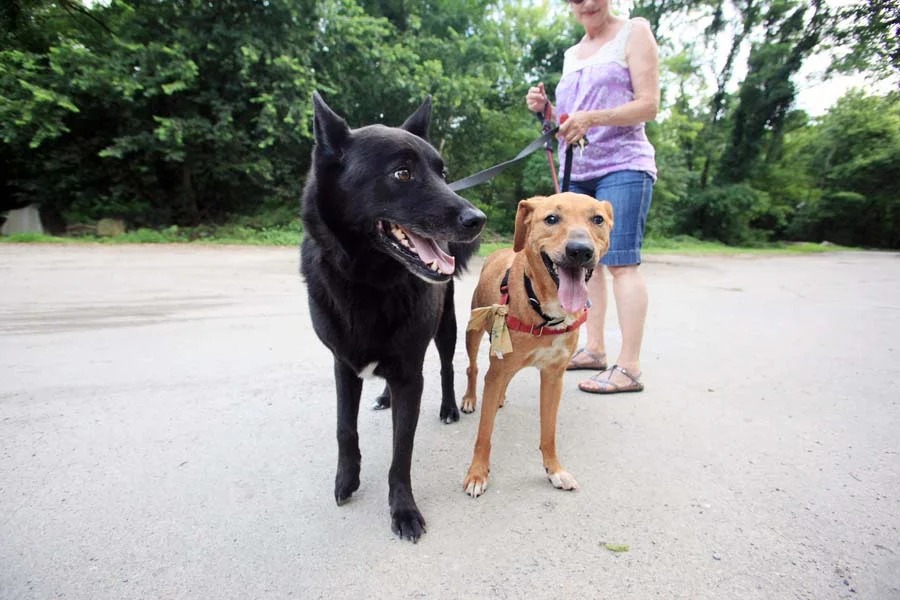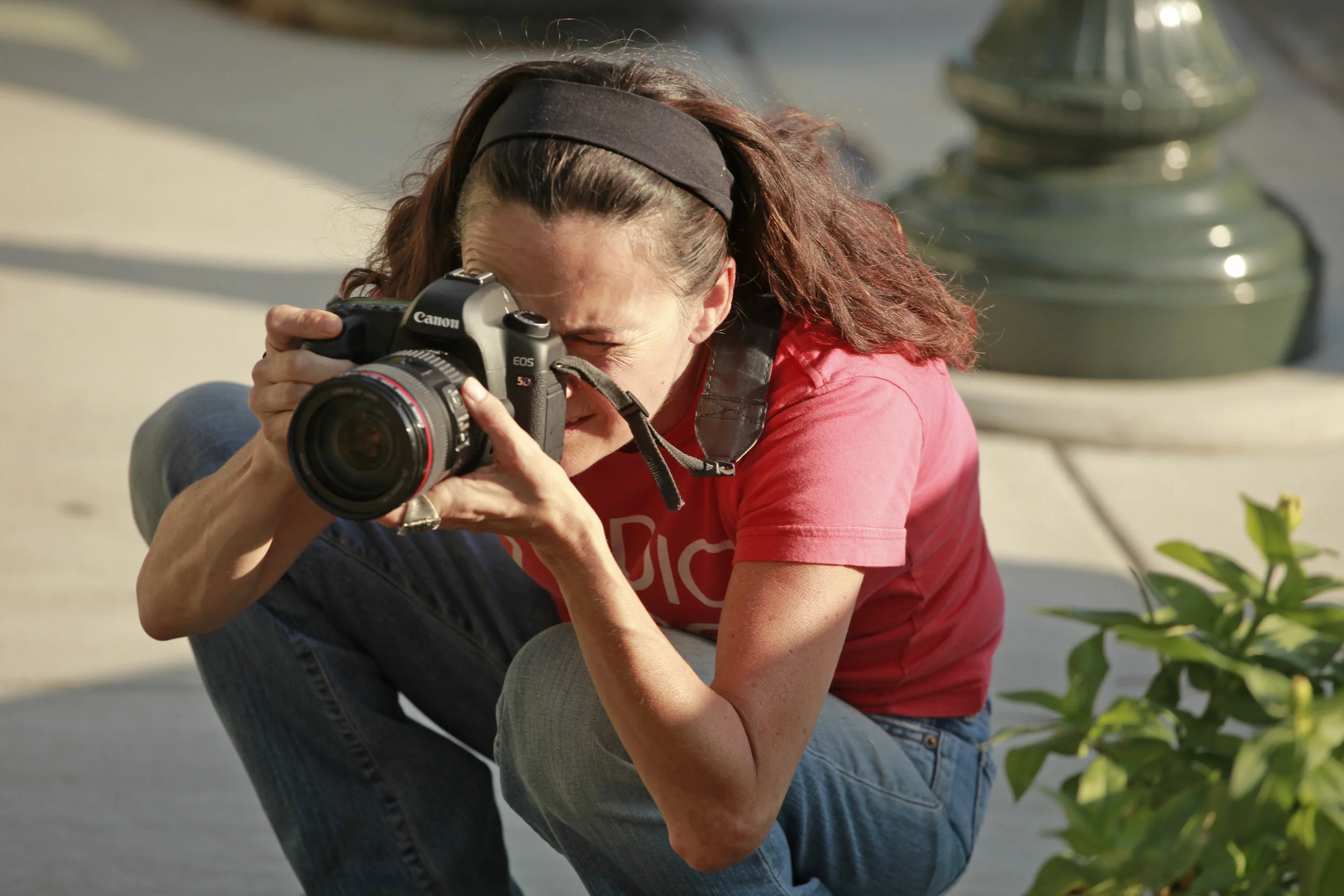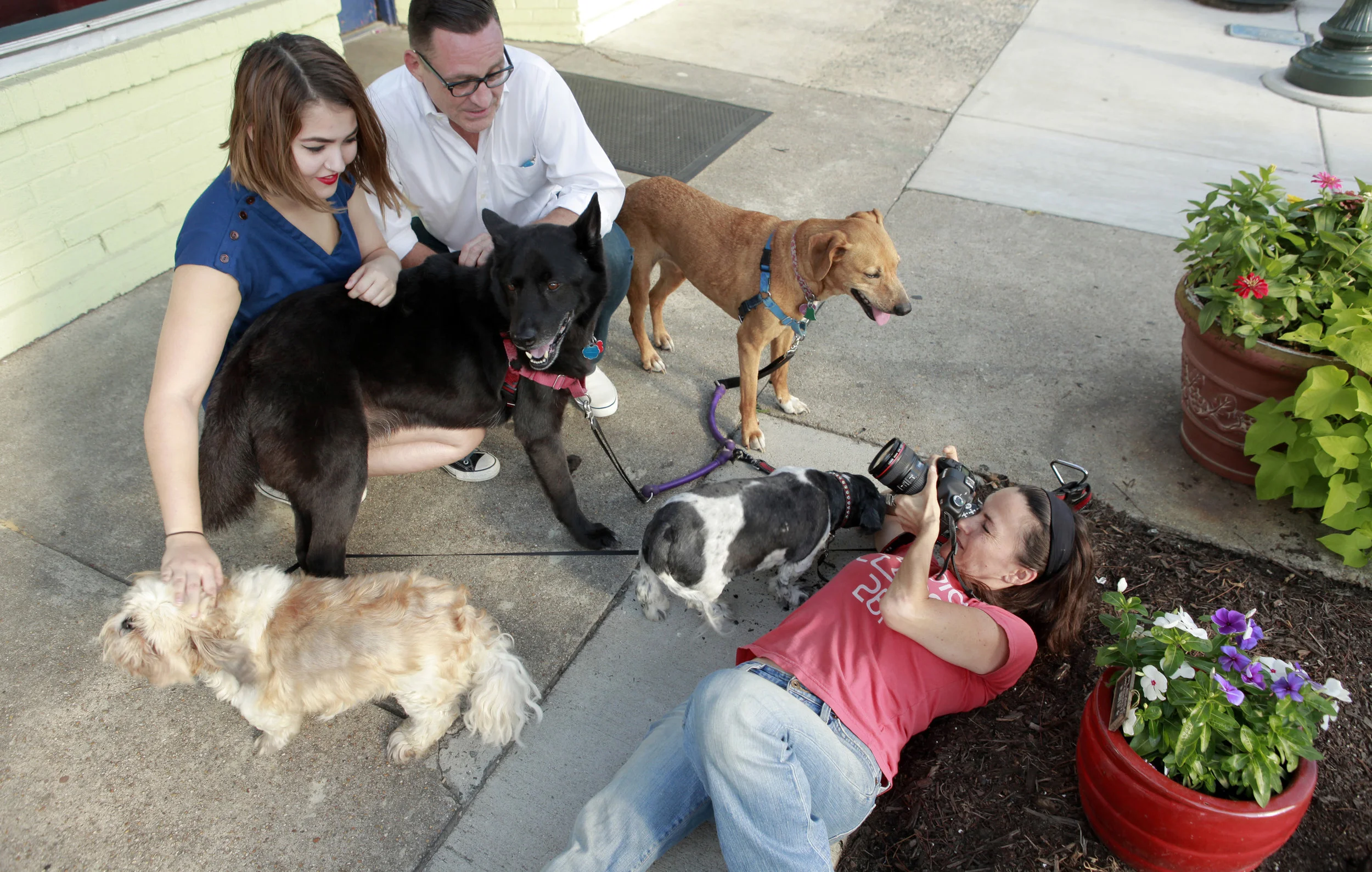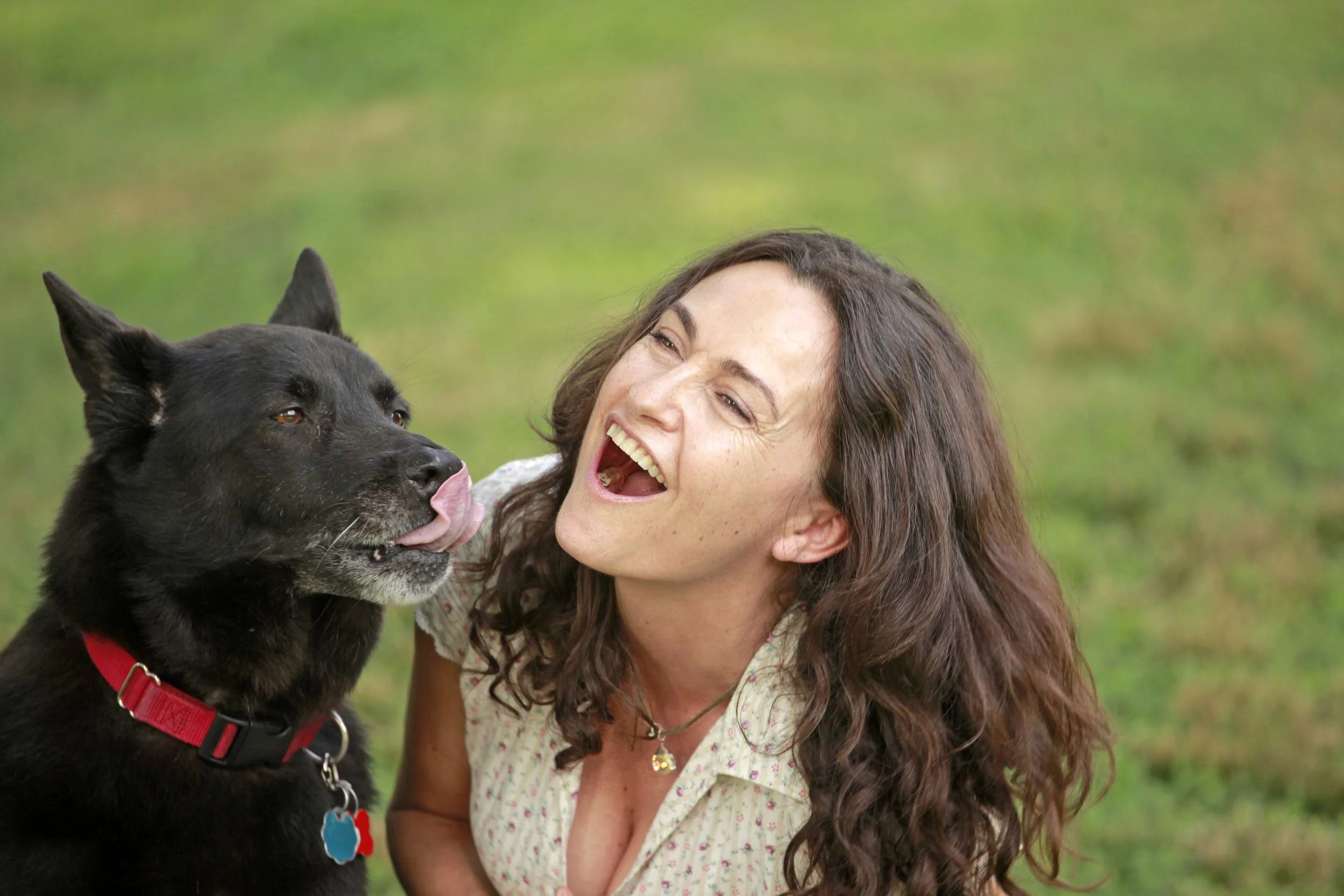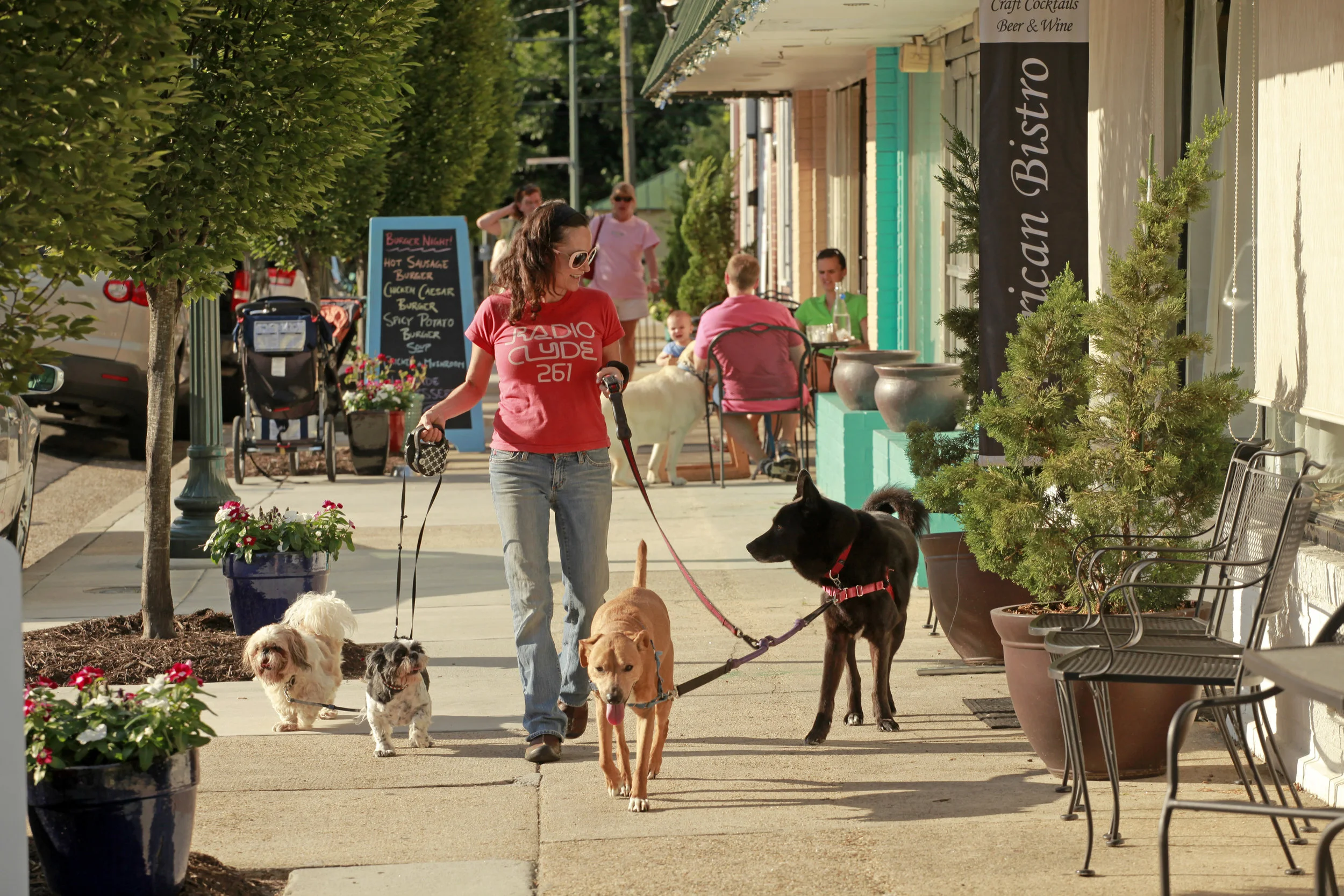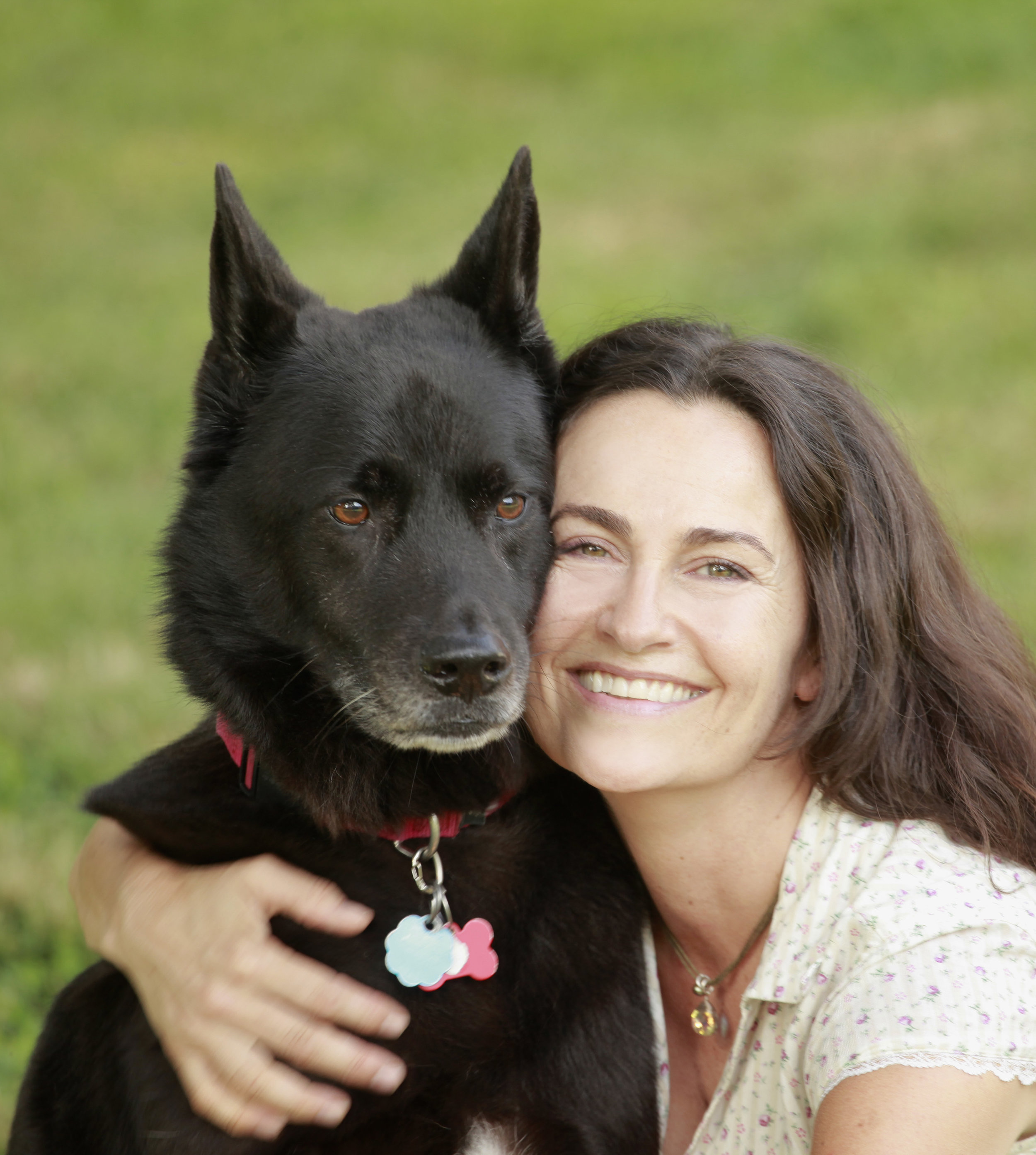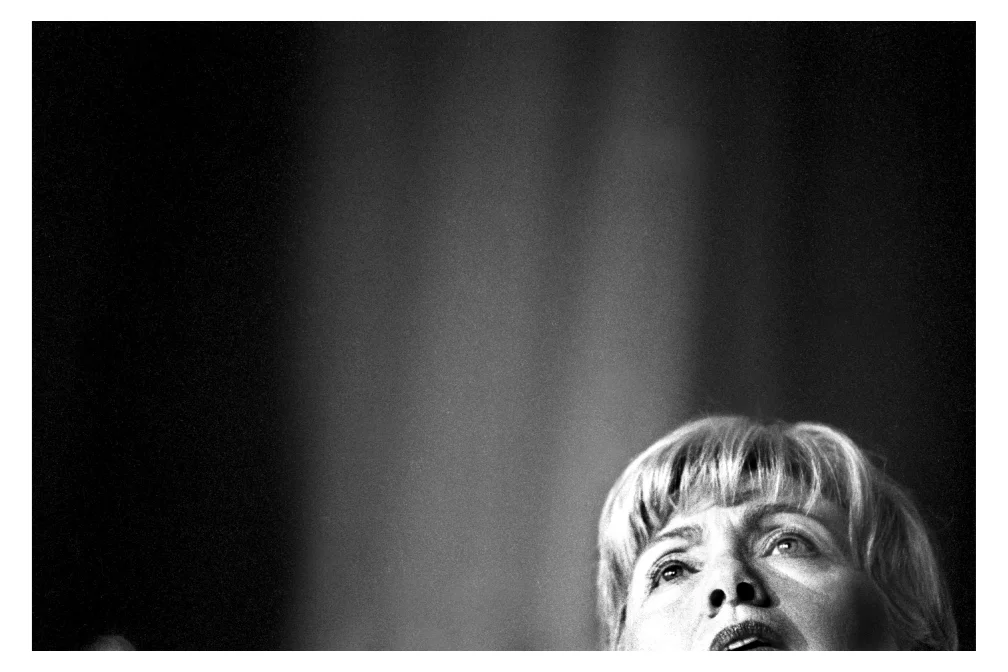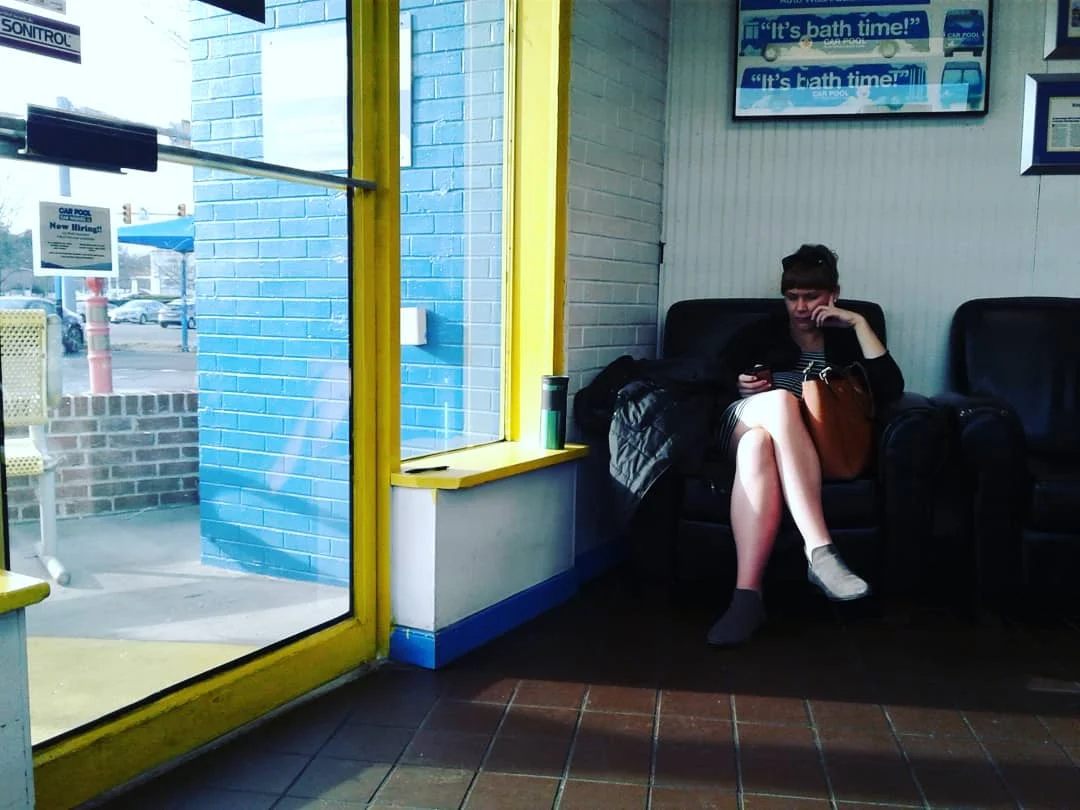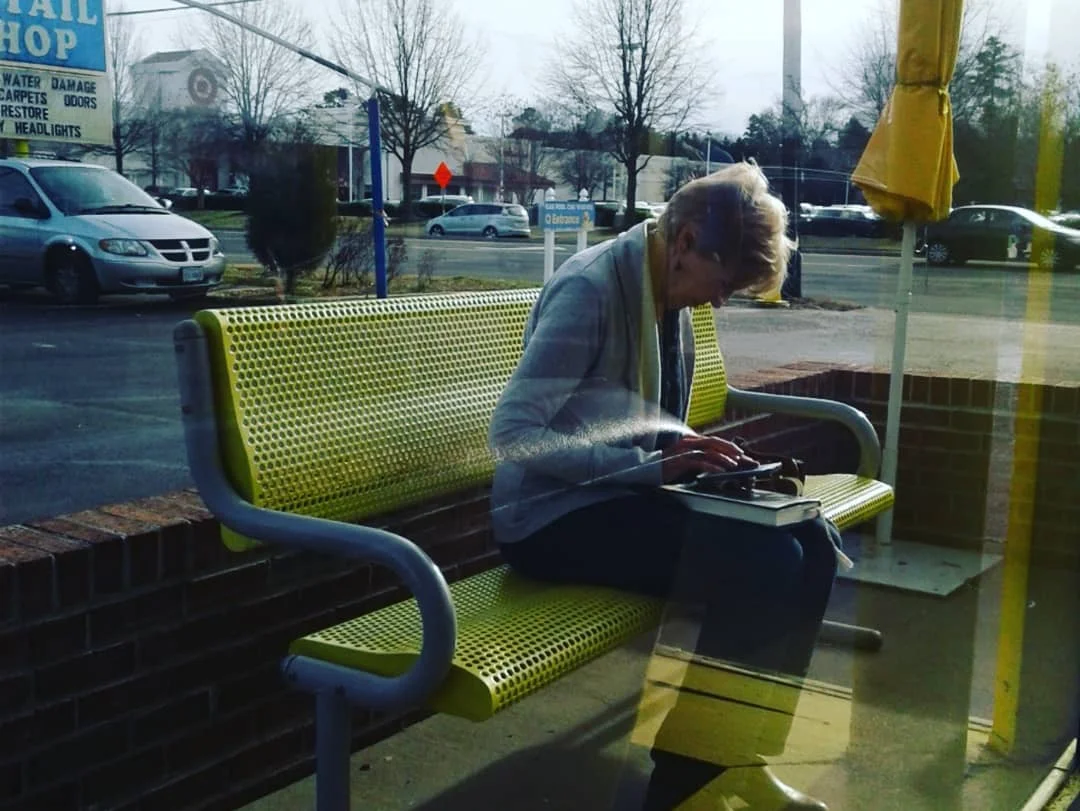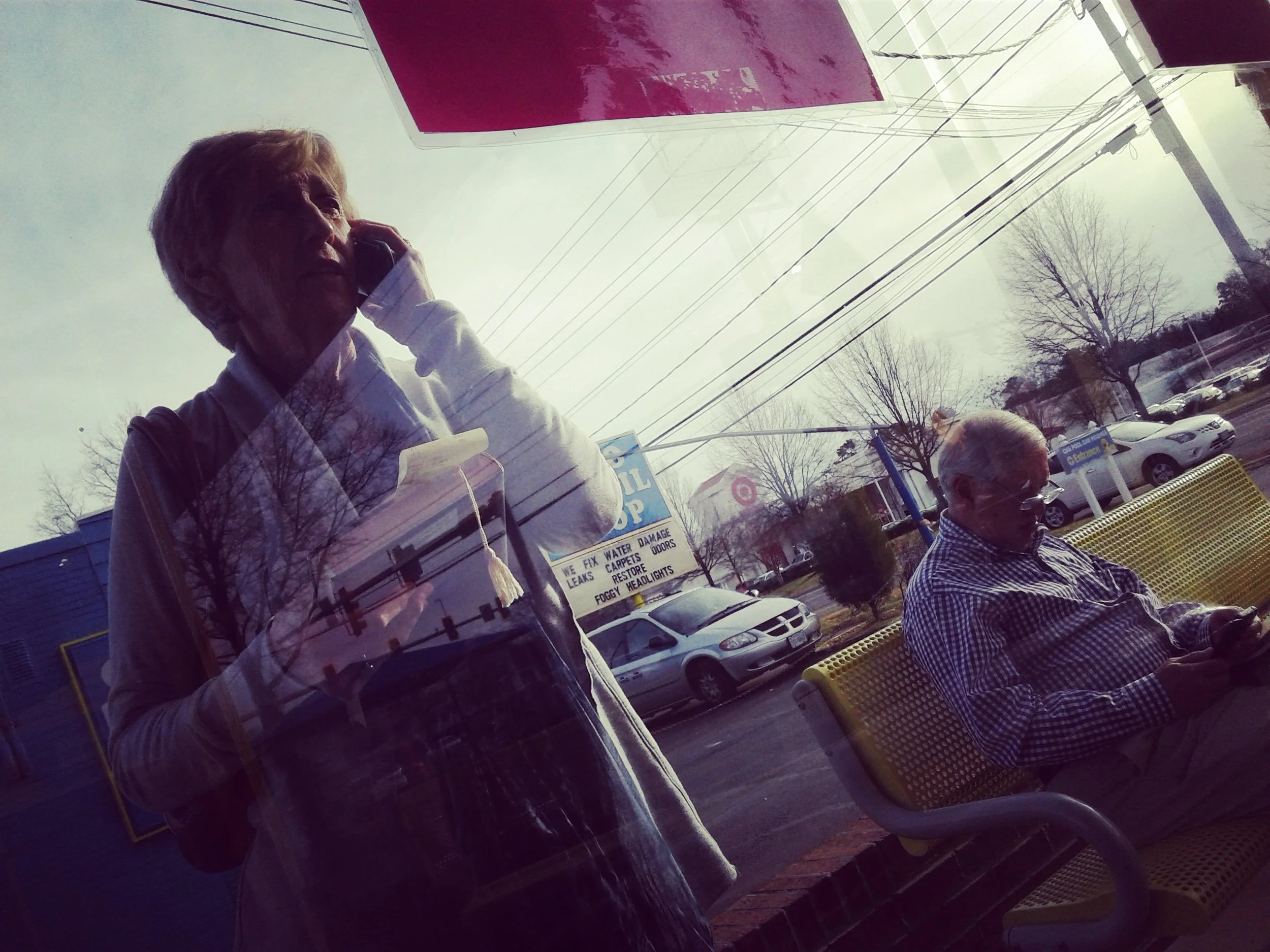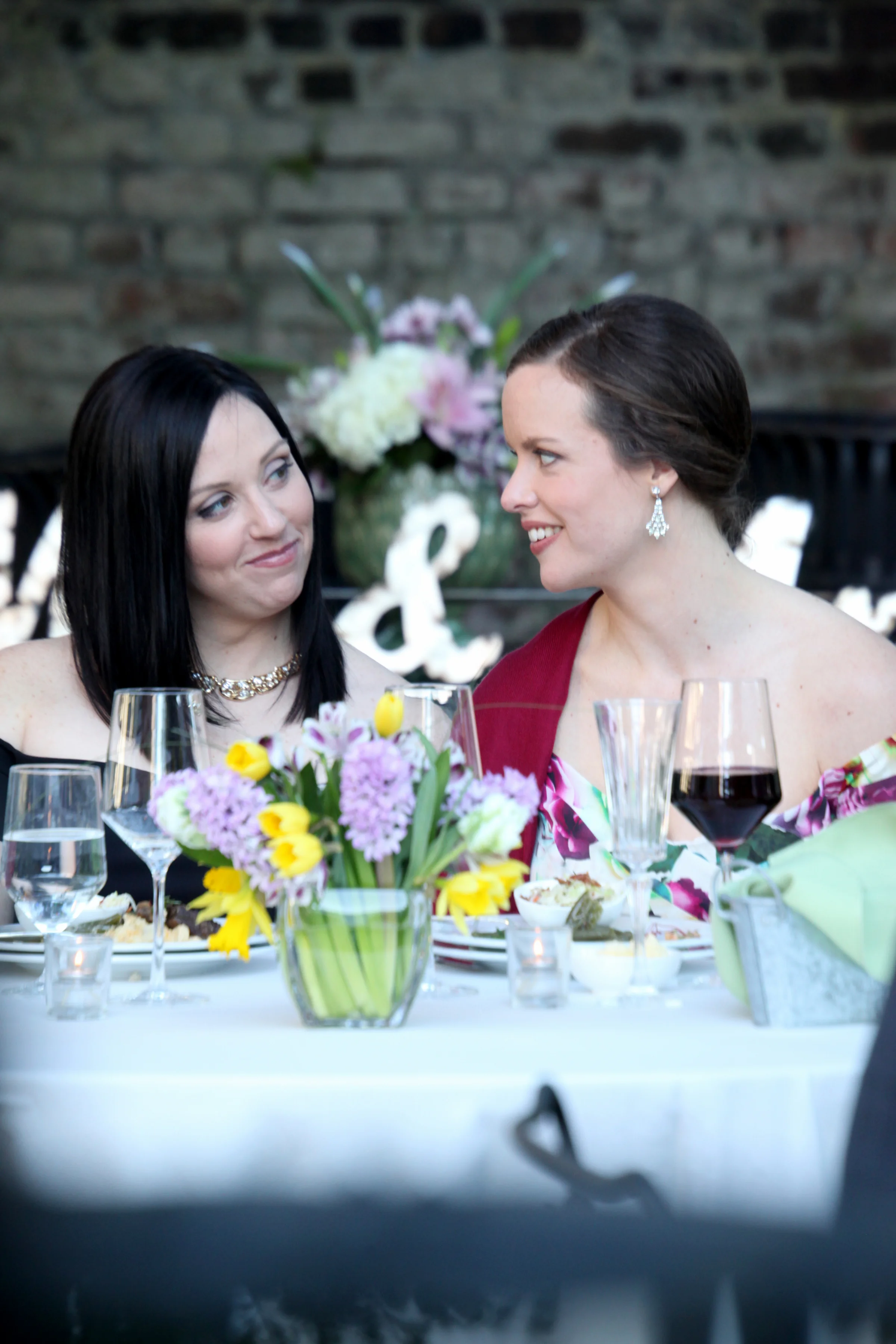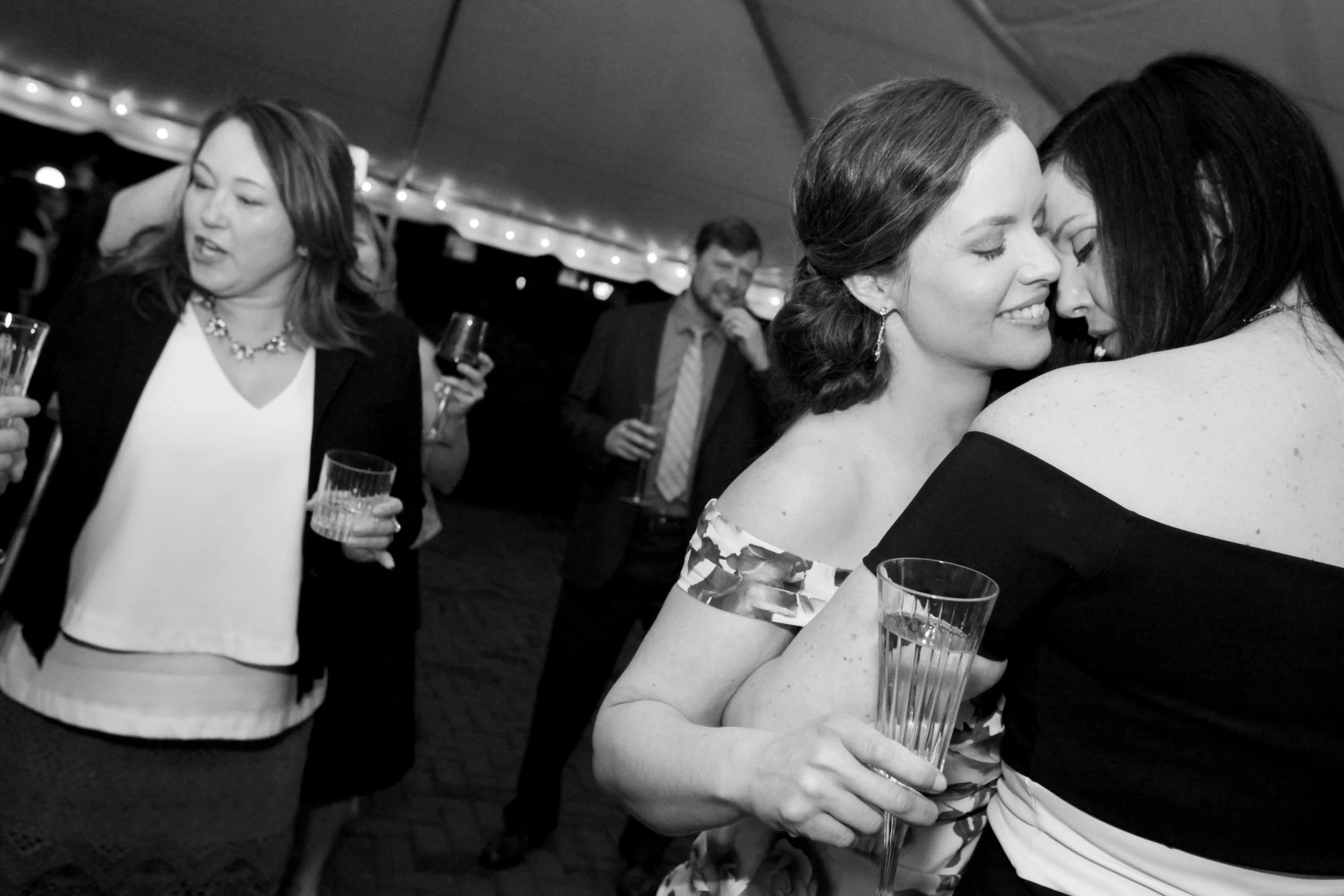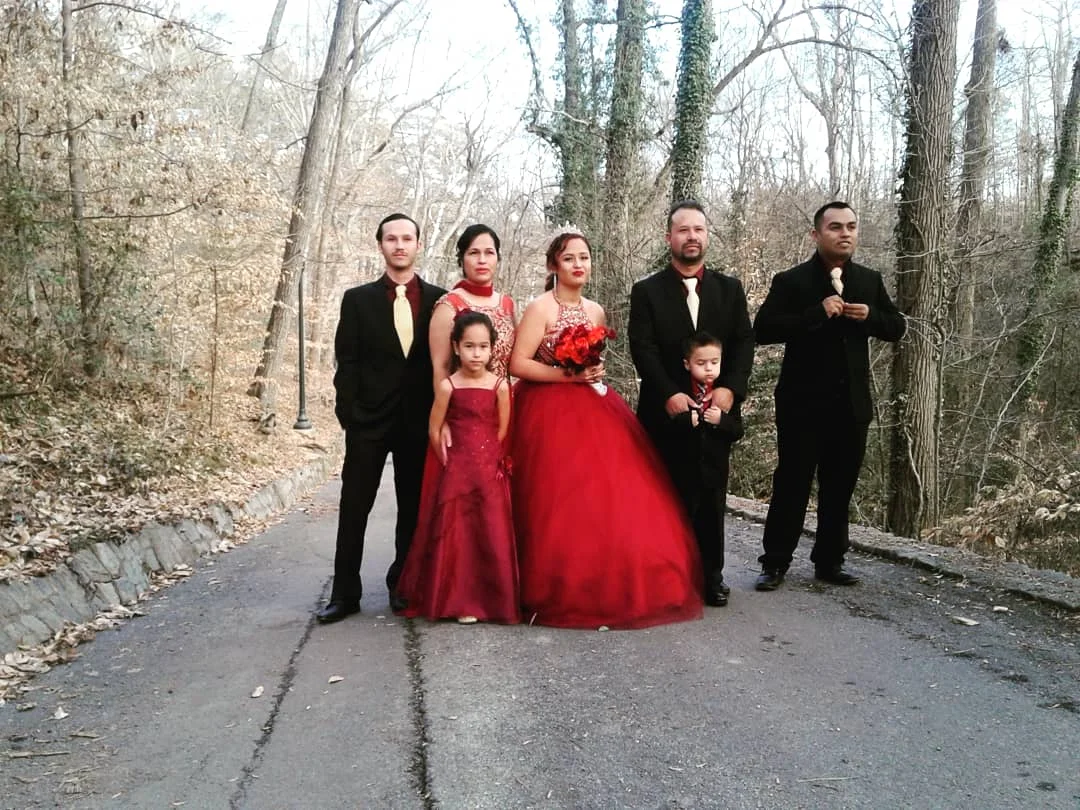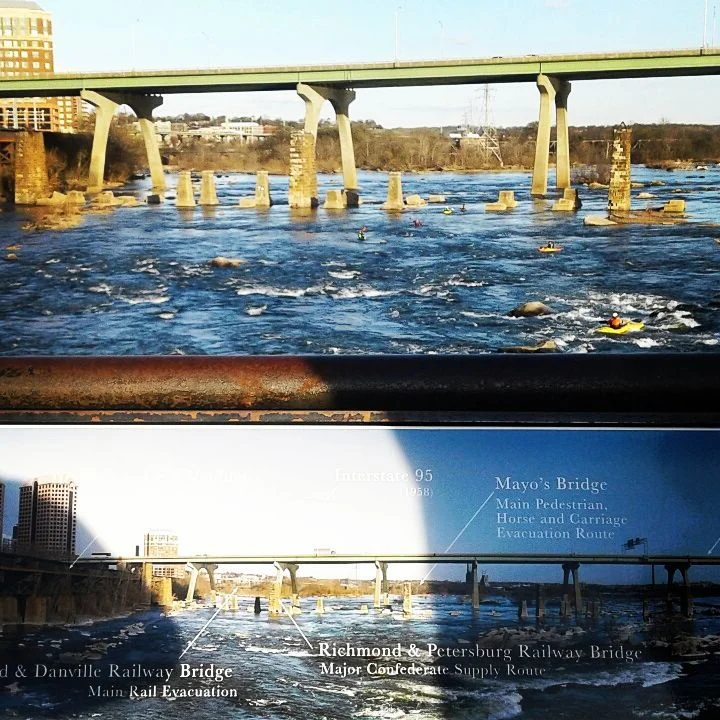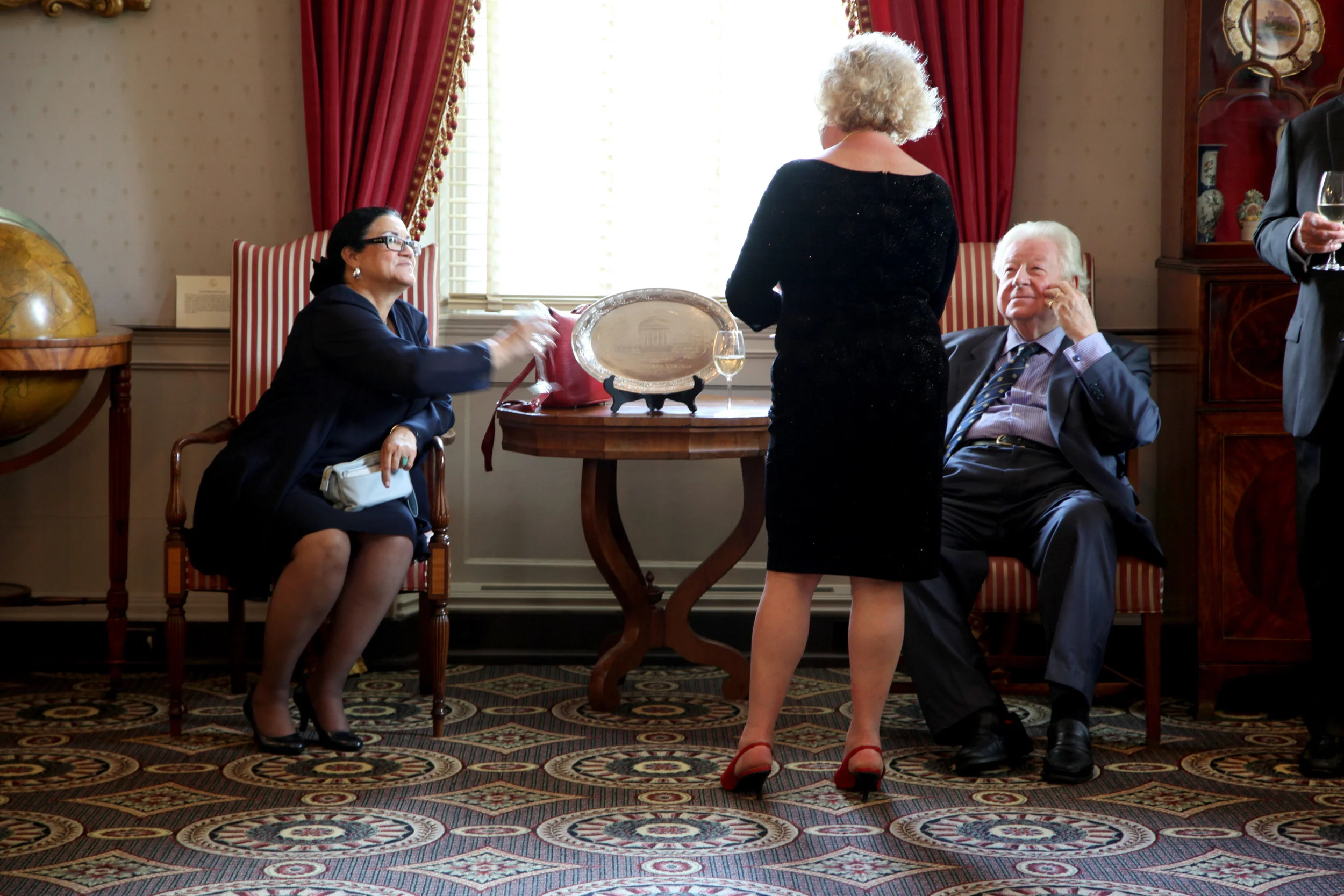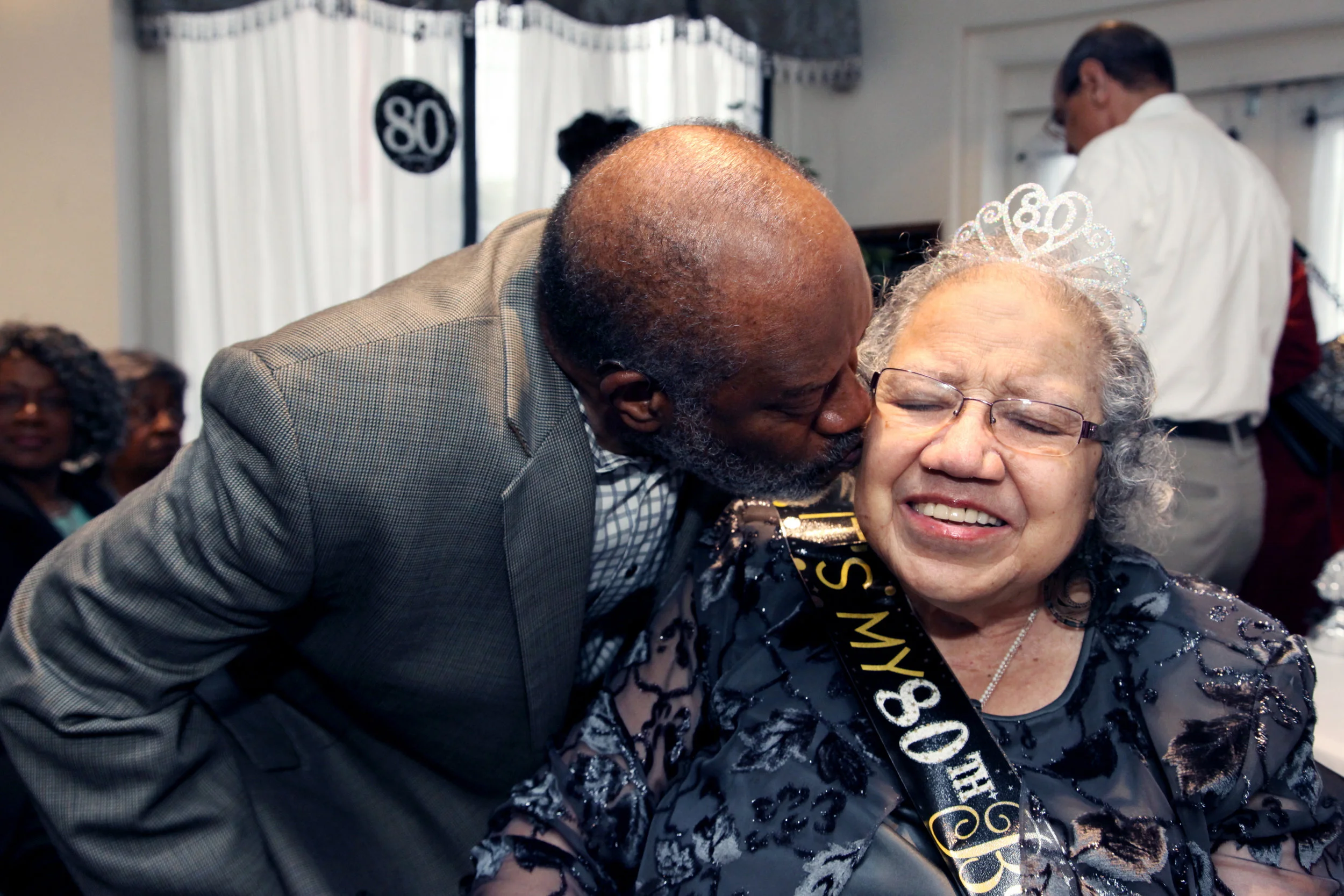Who is Rebecca D’Angelo?
Rebecca D'Angelo was a career photojournalist who recently transitioned to real estate. She currently lives in Lakeside in Richmond, Virgina, a place she has considered home (on and off) for the past 28 years, as she likes to try out different cities. She is ethnically Italian, Middle Eastern, French, English, Scottish, Dutch and Native American, and grew up middle class, though she is now "working class" :). She does not "identify" with any particular ethnic group, other than Human. Her father was in the Air Force, which moved the family around a bit, including three years in Liberia. She attended college at Virginia Commonwealth University and University New Mexico, where she received a BFA. Dog rescue, the environment and affordable housing are her passions.
Excerpt from interview with Rebecca D’Angelo by Whitney Dow, 2017
Q: You talked about the seven generations in your DNA, and you just talked about being a daughter of the American Revolution, daughter of the Confederacy. How do you feel about those relationships? Are you proud of those connections to the past?
D’Angelo: [19:38:25] I just think everything’s cool. Even though my great-great-great- grandmother was supposedly on the Trail of Tears—when I was a kid, all my big arguments with my dad had to do with Native American rights. I’m deeply connected to that. It moves me very, very much. I just got so upset about everything. I went to Kentucky for a photojournalism thing, and I went to the Trail of Tears monument, and I actually got very verklempt and sad about it. I also think it’s cool—I mean, not cool that she was on the Trail of Tears. That was a horrible thing. Everything we did and that we continue to do is horrible, horrible, horrible.
But to be a part of the fabric of everything. We can’t change the past. We can’t judge the past based on right now, either. We owned slaves in my mother’s side. Again, it goes back to the trigger, release, transform, - the forgiveness part. There’s a prayer I do all the time. I ask for my ancestral templates, my familial patterns, and my inner child wounding to be healed, and transformed, and forgiven. I think ever since I was a child, I’ve been praying for my past, and asking forgiveness for anything that my relatives may have affected. Apparently—my name is Rebecca. And this is romanticized, okay, but there was [laughs] a slave girl, a house girl. What’s interesting is, when we lived in Africa, we had a chauffeur, a houseboy, is what they were called, a cook, and a landscaper, which came with the house, because we were diplomats. Then here, in my distant, distant, distant family’s history, her name was Becky.
My mom says I can’t remember anything the way it actually happened, but I feel like I was told that there’s a picture of her—in the picture, I see a little baby doll that she’s holding. I’d like to think that I got my name from her. Then when I was living at Black Mountain [North Carolina], there was a time where I wanted to apply for a grant to photograph and document, kind of like what you’re doing, where people that had owned slaves—and black people also owned slaves here—that had owned slaves were reunited with them. My mother, of course, says that nothing bad—that we never did any horrible things like rape, and there was never any of that horrible stuff that you hear about.
I’d like to believe, ultimately, in the goodness of people, no matter what the era was, that it was a tolerable situation in an intolerable time, that not everybody was beaten, or Kunta Kinte-d, or anything like that. I mean, you would [makes cross gesture] hope so. Anyway, I wanted to do this documentary, and a couple people have done it, where the black descendants of slaves have found the white descendants of the slave masters. But I wanted to find our own. I had this very interesting dream the other night where I met this girl, who was the descendent of one of my family’s slaves, and we both cried. So there’s healing, right? It came in a form of a dream and everything, but there was some sort of conscientious thing going on.
Interview Transcript
Participant-Submitted Photos
